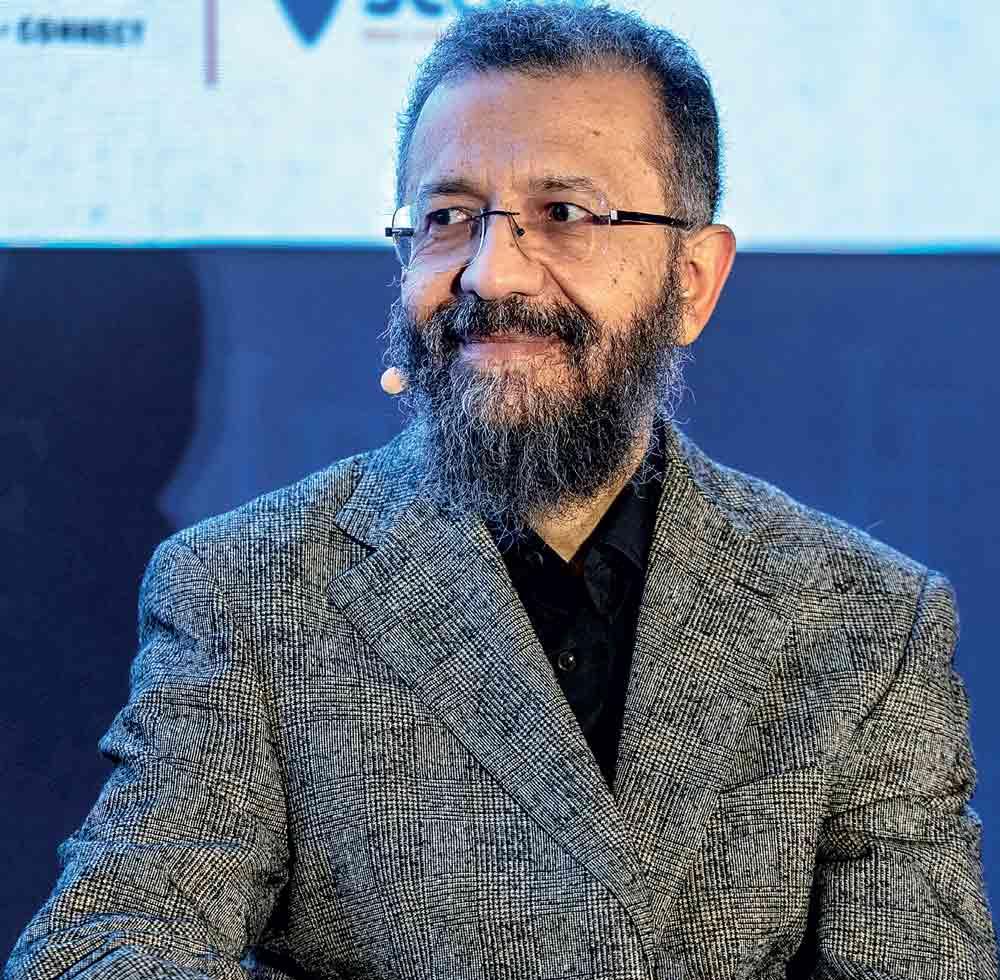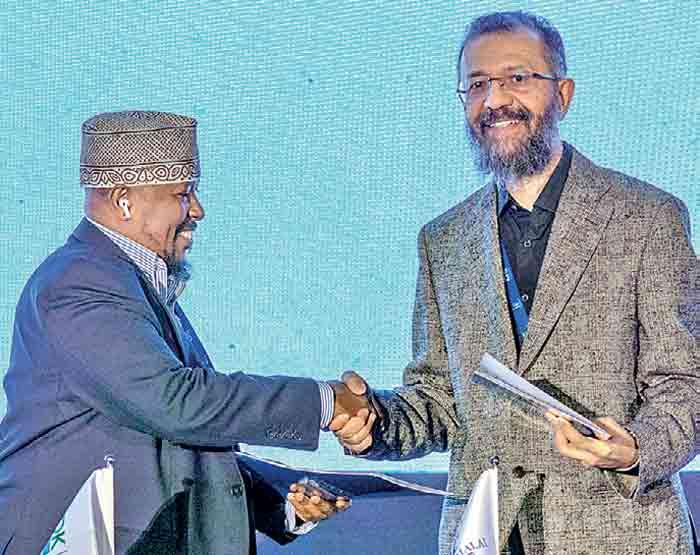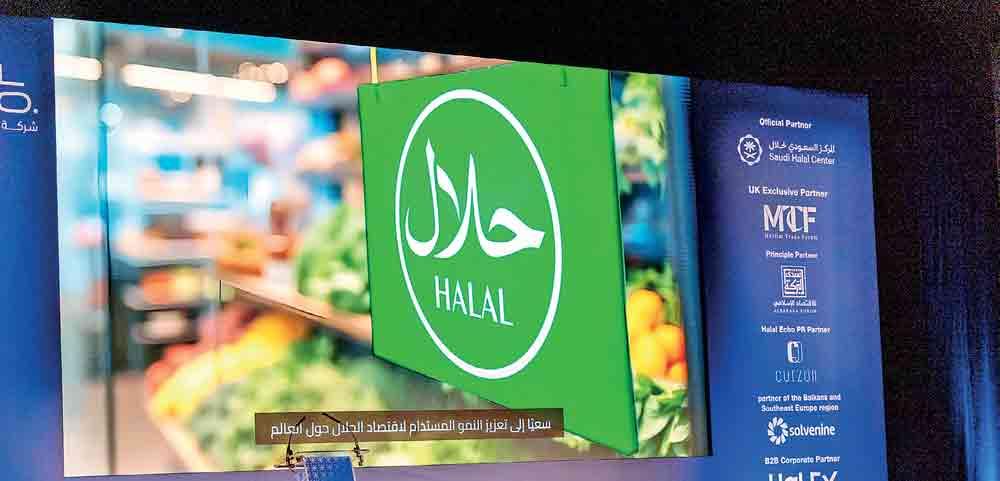
As global demand shifts toward ethical, transparent, and value-driven commerce, the Halal economy has emerged as one of the world’s most dynamic growth frontiers, now valued at over US$2.4 trillion. At its centre is H.E. Mr. Yousef Hassan Khalawi, Secretary General of the Islamic Chamber of Commerce and Development (ICCD), whose leadership is helping shape Halal as a universal framework rooted in integrity, quality, and responsible business. In this exclusive conversation, he discusses the forces accelerating Halal’s global expansion, from digital transformation and AI-enabled supply chains to the rising purchasing power of young Muslim consumers. He also reflects on why London hosted the landmark London Halal Forum 2025, the alignment between Halal and ESG principles, and the opportunities ahead for emerging economies. Crucially, he outlines how countries like Sri Lanka can leverage certification, partnerships, and innovation to strengthen their role in the global Halal value chain.
Q What are the major forces driving the US$2.4 trillion Halal economy?
The growth of the Halal economy is driven by global demand for ethical, transparent, and high-quality products. Consumers today are far more conscious about what they consume and how it is produced. Halal principles, which emphasise integrity and safety, naturally appeal to this mindset. At the same time, the purchasing power of young Muslim consumers is rising, and new sectors such as pharmaceuticals, logistics, and cosmetics are embracing Halal standards. Governments and multinational companies now recognise that Halal certification provides trust and credibility in international markets.
Q How will digital transformation shape the Halal economy over the next decade?
Digital tools and AI will enhance the reliability of Halal supply chains. Blockchain and real-time tracking will make compliance more transparent and efficient. These technologies will reduce costs for exporters, simplify certification processes, and create new innovative platforms for trade. For emerging economies, this digital shift offers an opportunity to participate more effectively in global Halal commerce. In fact, to showcase AI innovation within the Halal Sector, we had our own AI host called ‘Tayyib’ at the opening ceremony of the London Halal Forum.
Q Why was London chosen as the venue for the London Halal Forum 2025?
London is a centre of global finance, diplomacy, and multicultural dialogue. It offers a strategic platform for presenting Halal as a universal system based on quality and ethical conduct. The message of “Halal Tayyib for Humanity” or “Halal Purity for Humanity” resonates strongly in a city that values responsible business, innovation, and inclusivity. London helps position the Halal economy within the global mainstream.
Q How can Halal businesses lead the shift toward responsible and sustainable investment?
Halal principles are deeply and naturally aligned with ESG values. Halal-certified companies follow responsible sourcing, fair labour, and transparent governance. These practices support sustainable development and attract investors who prioritise ethical operations.
As ESG is becoming central to global investment, Halal businesses are well placed to serve as models of integrity and responsible conduct.

Q What potential do you see for Sri Lanka in the global Halal value chain?
Sri Lanka has strong capabilities in food processing, spices, apparel, tourism, and logistics. Each of these sectors plays a huge role in the Halal economy. The country’s geographical position at a key maritime crossroads provides a natural advantage as well. With the right partnerships and certification frameworks, Sri Lanka can become a significant Halal hub for South Asia.
Q How can Sri Lankan SMEs in agriculture and spices use Halal certification to access global markets?
Certification assures buyers that products are safe, ethically produced, and traceable. Sri Lankan SMEs can benefit greatly in high-value markets for tea, spices, coconut products, and ready-to-eat foods. By adopting Halal standards and receiving proper training, SMEs can differentiate themselves, secure premium pricing, and strengthen their export presence.
Q How can Sri Lanka develop into a leading Muslim-friendly tourism destination?
Muslim travellers look for comfort, hospitality, and respectful cultural experiences. Sri Lanka can attract them by offering Halal-certified dining options, prayer facilities, privacy-conscious accommodation, and family-friendly activities. The objective is to maintain the charm and authenticity of Sri Lanka while providing practical services that meet the needs of global Muslim travellers.
Q How could partnerships between ICCD, ICHS, and Sri Lankan institutions support export readiness?
Such partnerships can provide training, capacity building, certification support, and market intelligence. Through joint programmes, Sri Lankan producers would gain a clear understanding of international Halal requirements. These collaborations can help the country strengthen its competitiveness and establish long-term export relationships with markets across the Islamic world.
Q What role can Sri Lanka’s Muslim community play in strengthening links with the Islamic world?
The Muslim community in Sri Lanka has a historic legacy of trade and entrepreneurship. Their global networks, business experience, and understanding of diverse cultures allow them to act as important connectors between Sri Lanka and the broader Muslim world. They can facilitate exports, investment, and bilateral commercial cooperation.
Q How can the ICCD empower young Sri Lankan Muslims entering finance and technology?
We support the next generation through leadership programmes, mentorship networks, and access to international Halal industry platforms.
Young professionals skilled in technology and ethical finance are essential for the future of the Halal economy. By empowering them, we help Sri Lanka build the human capital needed for long-term participation in global markets.
Q How is the ICCD contributing to the harmonisation of Halal standards?
The ICCD works closely with global partners to encourage mutual recognition of certification systems. Harmonising standards reduces confusion for exporters and ensures that Halal compliance is accepted across borders. Our goal is to promote consistency, credibility, and increased trade efficiency.
Q What does responsible governance mean for Halal businesses in developing economies?
Responsible governance means fairness, transparency, accountability, and ethical conduct in every step of the value chain. For developing countries, it also means protecting smaller producers, promoting honest pricing, and ensuring that economic growth is inclusive. These principles strengthen trust and improve market access.

Q How can global institutions counter misinformation about the Halal economy?
We must communicate clearly that the Halal economy is rooted in integrity and in sustainable and ethical practice. Through initiatives like the Halal Echo session, we encourage media and institutions to present accurate information. Consistent messaging helps audiences understand that Halal economy benefits all consumers.
Q How can nations work together to present Halal as ethical rather than exclusionary?
International cooperation is essential. By focusing on shared values such as quality, sustainability, and fairness, both Muslim-majority and non-Muslim-majority countries can promote Halal as a positive and inclusive commercial ecosystem. This approach reduces stereotypes and builds global confidence.
Q Which sectors offer the strongest investment potential for emerging economies?
Key sectors include technology, pharmaceuticals, clean cosmetics, food processing, sustainable fashion, and ethical finance. Global demand in these areas is expanding quickly. Countries that invest in these sectors will be well placed to benefit from the future growth of the Halal economy.
Q How can the Halal economy create jobs and entrepreneurial opportunities in Sri Lanka?
Rapid growth in Halal-related industries creates demand for skilled labour in agriculture, hospitality, logistics, technology, and certification services. Entrepreneurs can build businesses that serve both local and international markets. With the right infrastructure and training, the Halal economy can become a powerful engine of development.
Q How important is it to present Halal as a universal ethical framework?
It is essential. When Halal is understood as a system based on safety, transparency, and responsible conduct, it appeals to consumers of all backgrounds. This shift is necessary for mainstream integration and wider global acceptance.
Q How can policymakers communicate Halal as a value-based commercial ecosystem?
Policymakers can highlight the economic benefits of Halal standards, such as increased exports, stronger investor confidence, and improved governance. Moreover, as mentioned earlier, the Halal principles naturally align with today’s ESG values, that is increasingly gaining importance in the commercial ecosystem. Communicating Halal as a robust commercial ecosystem rather than a niche segment encourages broader participation and understanding.
Q Where do you see the strongest opportunities for UK and South Asia collaboration?
The United Kingdom is becoming a leader in ethical and sustainable trade. There is significant opportunity for collaboration in Islamic finance, Halal certification services, tourism, food processing, and digital solutions. These partnerships can open new markets for South Asian economies.
Q What are the best pathways for Sri Lankan businesses to engage with the ICCD and ICHS?
Sri Lankan institutions and businesses can participate through trade missions, joint projects, training programmes, and certification partnerships. We welcome engagement from government bodies, chambers of commerce, SMEs, and investors who aim to strengthen their presence in global Halal markets. Businesses can also participate in our sectoral Halal events in addition to bespoke Halal advisory services that the ICCD and the ICHS provide for interested parties.











